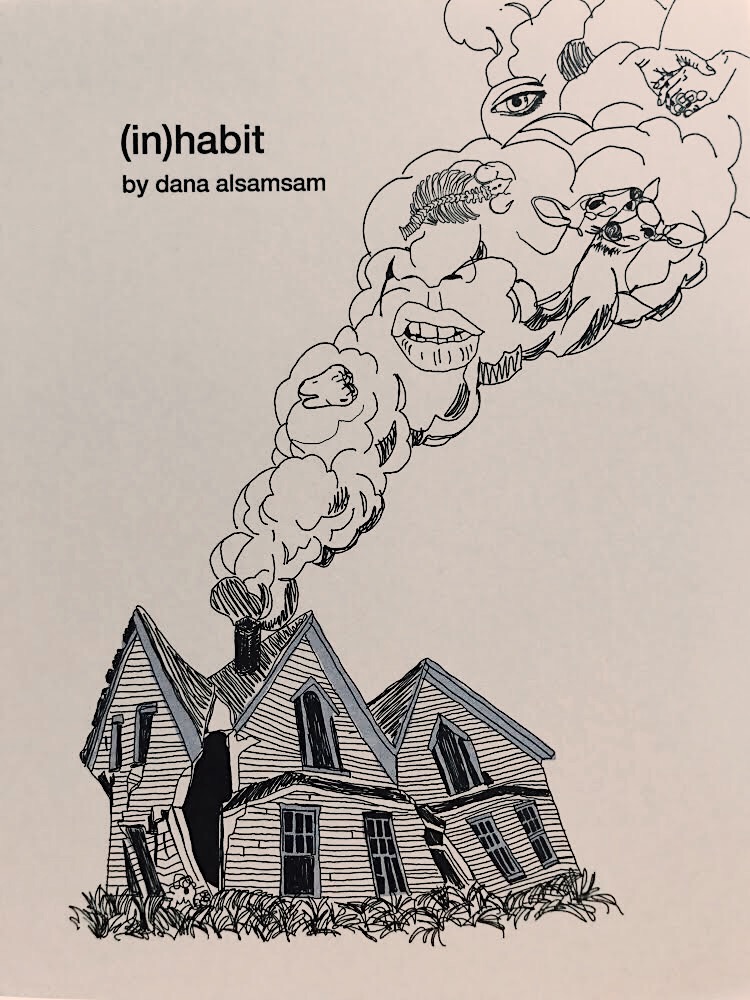REVIEW: (in)habit by Dana Alsamsam
By Tim Crisp
Long ago, we grew permanent in our damage.
The line appears within the third stanza of a poem called “(dis)solution” from Dana Alsamsam’s chapbook (in)habit. “(dis)solution” describes the morning Alsamsam’s parents were legally separated, but as the quote suggests, and as the preceding poems of (in)habit showcase, the unraveling was a long and traumatic process. Over the course of the book, Alsamsam describes the process of trying to build from a broken foundation.
(in)habit is divided into two sections titled (inhalations) and (exhalations), each preceded by a statement of intent. In (inhalations), Alsamsam states, “I attempt to describe my architecture,” building upon her relationships with her parents—her mother, specifically—and key moments that have shaped her sense of self. (exhalations) breaks the past selves apart, in search of a new meaning. The search does not come easy, as Alsamsam traces familiar, unhealthy paths, seeking validation. She encounters the stares of objectifying eyes and the vacancy of lovers who bring nothing but emptiness, but slowly she gains perspective on the pieces of herself and her relationships that can be harnessed in forward movement.
The prose of (in)habit is sharp and careful. Alsamsam utilizes poetic forms with a sense of functionality and an understanding of the power a structure can have in communicating a precise message. “petrichor” charts an anxious walk home alone, escaping the torment of a heckler. The poem’s lines are tightly bound, its syllables contained as the eyes follow down the page in rhythm to Alsamsam’s quickened, nervous steps. “Rue de Rivoli, Paris, France” is a prose poem that offers a snapshot of Alsamsam and her mother, standing on opposite sides of a wide street in Paris. “I am scouring her sacred heart for warmth but it’s too late and there’s too much distance between us,” she thinks, wondering who will be the one to cross the street. It’s a small snapshot of a fractured relationship, but a representative one. Alsamsam works within these tiny moments, the painful ones, but also the tender ones. It’s in the moments that the greater understandings are found, and sprinkled throughout the harrowing moments of (in)habit, there are also tiny bits of warmth.
“The Shapes We Make” brings readers into a quiet morning in a shared apartment with coffee, a mischievous cat, and an attentive partner. Little is said until the moment one asks if the other would like more coffee, “I realize the brief tragedy of flesh,” Alsamsam notes, “is shifted to a warm and furnished place.” Within the fear and the trauma that builds throughout (in)habit, warmth such as this is a gift to relish in.
courtesy of tenderness, yea


